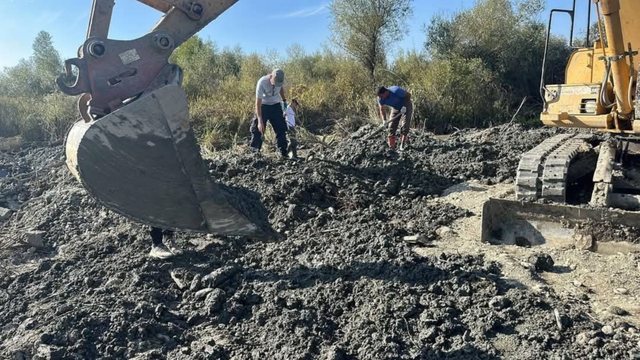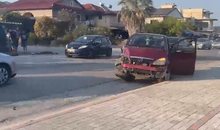
 Flash News
Flash News
Kurti: 11 missing during the war have been found and identified in the mass grave in Bishtazh

The Prime Minister of Kosovo, Albin Kurti, together with the Government Commission for Missing Persons, have announced that 11 people who went missing during the last war in Kosovo have been found and identified.
Through a post on Facebook, Kurti said that they were identified after "26 springs of waiting and anxiety."
"After the massacre in Kralan, Serbian state forces abducted and buried them in mass graves, in an attempt to eliminate them, along with evidence of the crimes. On April 2, 1999, they, along with hundreds of Albanian men and boys, were forcibly gathered by Serbian military and police forces in a field in Kralan, surrounded by tanks. There they were held under constant torture, without water and food for two days. On April 4, 86 men and boys were detained, including 11 minors. Since that day, none of them have been seen alive," Kurti said in a Facebook post, saying that after the exhumation from Bishtazhini, Serbia abducted the bodies.
Kurti said that the bodies of Adem Gashi, Sahit Gashi, Bekim Hasani, Sheremet Ismajli, Mentor Myrtaj, Osman Fejza, Shkelzen Hajdaraj, Bekim Gashi, Sabedin Kryeziu, Mentor Kryeziu and Vehbi Halilaj have been found and identified.
Authorities have not said when the bodies were found or how long the identification period took.
According to the latest data from the Red Cross, as of January of this year, there were 1,612 people missing in Kosovo from the 1998/99 war.
The Chairman of the Kosovo Government Commission for Missing Persons, Andin Hoti, sent a letter to the European Union's chief diplomat, Kaja Kallas, in February, requesting concrete steps from her and the European bloc to force Serbia to cooperate and open its state archives, including military, police and intelligence, to understand the whereabouts of the missing from the last war.
A meeting of the Joint Kosovo-Serbia Commission on Missing Persons was scheduled for January 15 of this year, but it failed due to Serbia's refusal to participate, as a sign of protest after an action by the Kosovo Government to close Serbian institutions.
The Joint Kosovo-Serbia Commission on Missing Persons was established based on an agreement reached last year within the framework of the dialogue for the normalization of relations between the two countries, mediated by the European Union, for the implementation of the Declaration on Missing Persons.
The formation of the Commission was preceded by the agreement reached by the leaders of Kosovo and Serbia in 2023 on the Joint Declaration on Missing Persons.
Some of the commitments made in the declaration include:
In practice, not a single point of the declaration has been implemented, despite calls from the European bloc.
Kosovo and Serbia have been in dialogue since 2011 and have reached a host of other agreements, but not all of them have been implemented.
The European Union frequently reminds both parties that advancement in the dialogue process is linked to their path to Euro-Atlantic integration./rel
Latest news


Not only the body, swimming also helps the brain
2025-07-05 21:02:49
"Be careful with the water", Alimehmeti warns about the health risks of summer
2025-07-05 20:39:10
PSG beats Bayern Munich 2-0, advances to Club World Cup semifinals
2025-07-05 20:19:38

Two vehicles collide on the Elbasan-Peqin axis, drivers injured
2025-07-05 19:26:29

What does Zelenskyy have more than Zegjineja?
2025-07-05 18:45:26

Fiscal peace, but at a cost
2025-07-05 18:00:10
'Bankers' tax evasion, Chinese CEO and former director jailed
2025-07-05 17:39:21
Kyle Walker joins English club on two-year deal
2025-07-05 17:20:24
Two cars collide on the Saranda-Delvina axis, 4 injured
2025-07-05 17:05:29
Touching gesture! Liverpool will pay Jota's family's salary until 2027
2025-07-05 16:45:18
The zodiac signs that cheat most often
2025-07-05 16:25:53

"I asked for the dismissals", Dredha tries to soften Rama's 'blow' in Vlora
2025-07-05 15:48:49
Bomb threat in Parliament, prosecutor: It was a lie
2025-07-05 15:22:28

Bardhi: The recount revealed how greedy Zeqine Balluku is in stealing
2025-07-05 14:44:29
Knife wound on the secondary road Tirana-Durrës, perpetrator sought
2025-07-05 14:37:54
Tears and pain, Diogo Jota is escorted to his final home
2025-07-05 14:21:34
Success starts with yourself! Simple ways to invest in personal development
2025-07-05 13:58:50
Unlicensed firearms found in apartment, 50-year-old arrested in Lushnje
2025-07-05 13:43:11

Tirana Court remands Skerdi Sina to prison
2025-07-05 12:59:34
Cocaine laboratory in Greece, here are the Albanians arrested and wanted
2025-07-05 12:40:16
Directed Justice/Vangjeli: SPAK does not investigate any scandal involving Rama
2025-07-05 12:22:03

Bomb alert, Police remove MPs and media from Kosovo Parliament building
2025-07-05 11:48:16
"The will of the people" and the irony of ordered resignations
2025-07-05 11:32:05
Summer drowning risk: How to enjoy the water without risking your life
2025-07-05 11:20:27
Fire situation in the country, 16 fires reported in 24 hours, 4 still active
2025-07-05 11:07:04
Car hits pedestrian at white lines, injured in serious condition in Vlora
2025-07-05 10:59:58
Mosquito-borne diseases are a growing problem in Europe
2025-07-05 10:44:13



One of Sweden's most dangerous and wanted criminals arrested in Turkey
2025-07-05 09:38:29
Foreign exchange/ How much foreign currencies are bought and sold today
2025-07-05 09:18:38

"Don't be influenced by the opinions of others", today's horoscope
2025-07-05 08:40:50

Morning Post/ In 2 lines: What mattered yesterday in Albania
2025-07-05 08:02:07

Trump says he's ready to raise tariffs to 70% on some countries
2025-07-04 22:35:52
Tre shenjat e zodiakut që do ‘pasurohen’ në Korrik
2025-07-04 22:05:09
Gaza War: Hamas Accepts US Proposal for 60-Day Ceasefire
2025-07-04 21:50:10
Autocracy in Albania, Fuga: Governance has gotten out of control
2025-07-04 21:40:51
Meta: Agriculture on credit, the new fraud!
2025-07-04 21:26:39




Vote recount in Durrës ends without changes
2025-07-04 20:12:54
Gas station explodes in Rome, 25 injured (VIDEO)
2025-07-04 20:00:20

These afternoon habits often sabotage weight loss
2025-07-04 19:39:28
Former Arsenal player Thomas Partey accused of rape
2025-07-04 19:24:21
Shepherd disappears without a trace in Delvina
2025-07-04 19:14:31

Bardho gave Zegjine's mandate/Braho: Unfair! It violates the electoral system
2025-07-04 19:01:08


Rapid developments in the Sultanates!
2025-07-04 18:00:06



Italy tightens rules for skateboard traffic
2025-07-04 17:20:18

Unusual for the time, dense fog covers the coast of Vlora
2025-07-04 16:48:01


Accident on the Shkodra-Lezhë axis, one dead and 3 injured
2025-07-04 16:14:19
Albania with fewer requests for asylum and Albanian citizenship in 2024
2025-07-04 16:06:57

Albania last for quality of life, DP: Technical government is the solution!
2025-07-04 15:42:30
Nico Williams says "No" to Barcelona, signs with Athletic Club until 2035
2025-07-04 15:33:35
Fires in the country, four fires are still active, what is the situation?
2025-07-04 15:24:20

Summer brings big changes for these 4 zodiac signs
2025-07-04 15:00:04
Osmani: MPs need to agree to a secret ballot for the Speaker of Parliament
2025-07-04 14:51:09
Serious accident on the Peqin-Elbasan axis, two injured
2025-07-04 14:37:56

GJKKO leaves in force the security measure for the head of the KPP
2025-07-04 13:58:17
Who will replace Ilir Meta and take over the leadership of the PL?
2025-07-04 13:50:36
Berisha: Dismissal of directors in Vlora, another act of 'scapegoats'
2025-07-04 13:41:46




Librazhd/ In a serious psychological state, the young man consumes pesticides
2025-07-04 13:05:07


Weapons trafficked from Kosovo to Albania, two arrested, 8 pistols seized
2025-07-04 12:33:28
Konsumimi i tepërt i çokollatës, ja cilat janë dëmet që shkakton në organizëm
2025-07-04 12:23:35

Fires in the country, 21 fires in the last 24 hours, 4 still active
2025-07-04 12:00:19
WB calls for debt transparency: Albania to publish details of every loan
2025-07-04 11:50:05
